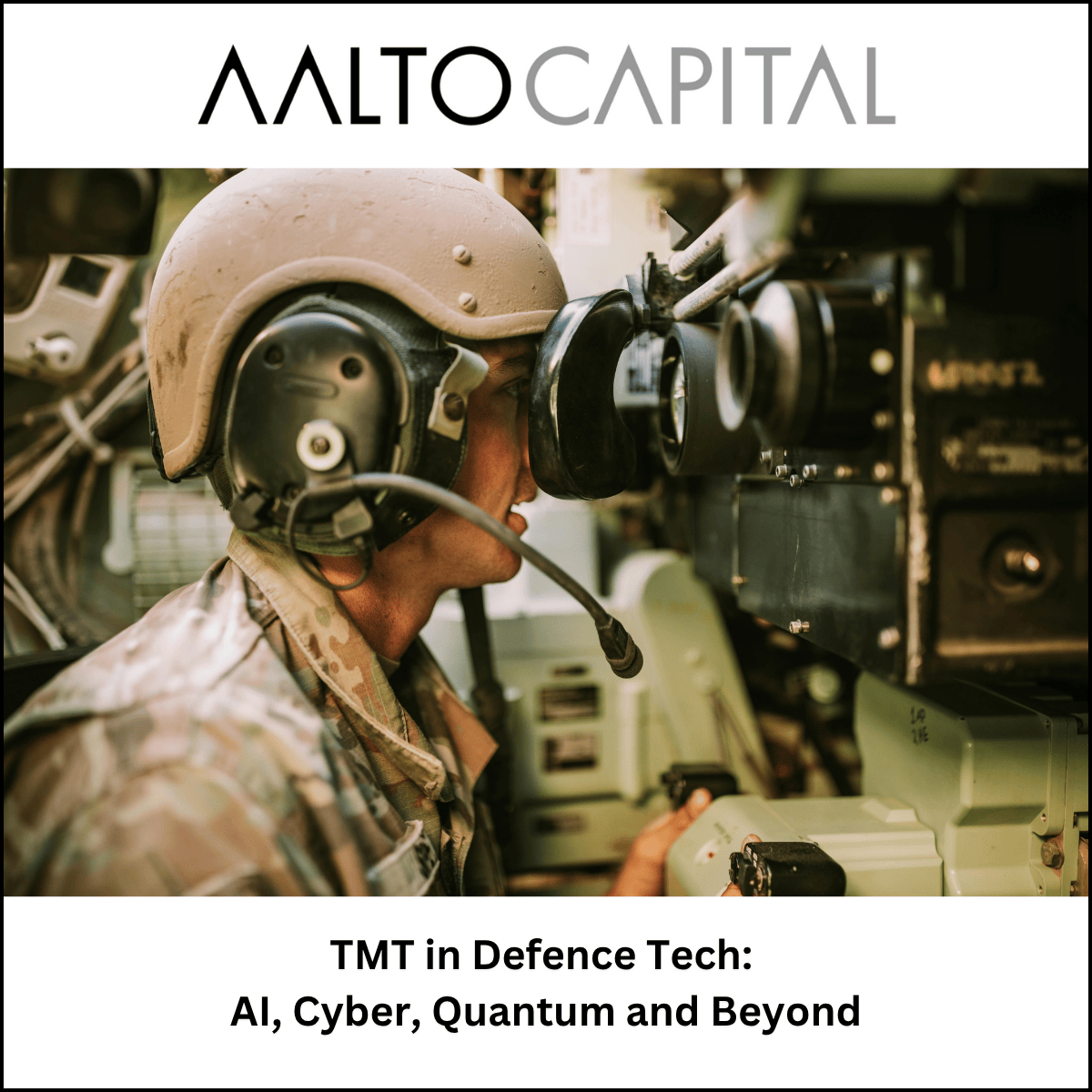TMT in Defence Tech:
AI, Cyber, Quantum and Beyond

As highlighted in our July newsletter, European governments and industries are increasingly targeting high-tech TMT sub-sectors to strengthen defence capabilities and strategic autonomy across the continent. Technology is now the decisive factor in defence spending, making the TMT sector a central focus.
Encouraged by NATO’s call for allies to spend 5% of GDP on defence and backed by new EU initiatives such as the €800 billion Rearm Europe plan, defence technology has shifted firmly into the mainstream for both public institutions and private equity investors.
A key priority for European militaries is pivoting from traditional hardware to AI-enabled systems such as surveillance, targeting systems, and autonomous drones. AI can drive faster decision-making and unmanned platforms, giving forces a technological edge in everything from intelligence analysis to battlefield robotics. Major firms are snapping up innovators, such as Safran’s purchase of AI firm Preligens, amid a new wave of public-private collaboration.
Europe is also prioritizing secure, independent connectivity from military satellites to 5G networks. Investment into satellite constellations and next-gen telecom (e.g. 5G tactical networks) is key to ensuring resilient communications and intelligence across Europe’s forces.
Microchips are the backbone of AI, communications, sensors, and weapons, making semiconductor self-sufficiency a requirement for European defence independence. Europe is pushing to secure its supply of chips, reducing dependence on foreign suppliers via initiatives like the EU Chips Act. Expending domestic semiconductor capacity is seen as vital for both military readiness and economic security.
With state-sponsored cyber threats on the rise, advanced cyber defence is also a top priority. Governments are investing in cybersecurity tools to safeguard critical infrastructure and command systems that are essential to countering hacking attempts. Again, Europe is rethinking its reliance on foreign tech, boosting its own cyber industry for secure networks. Additionally, EU leaders have raised concerns about quantum technologies, which could up-end the cybersecurity space overnight. If achieved, quantum technology could decrypt all secure military communications. Europe is racing to develop quantum encryption, sensing, and unhackable networks for future-proof security.
Europe’s defence landscape is undergoing a tech-driven transformation rooted in gaining technological sovereignty. Government procurement and R&D agendas are increasingly focused on innovation across AI, telecoms, microchips, and cybersecurity, with changes backed by rising budgets and unprecedented public and private investment. In betting on high-tech TMT sectors, Europe is positioning itself for technological superiority and security in the years ahead.
hashtag
#TMT hashtag
#defencetech hashtag
#technology